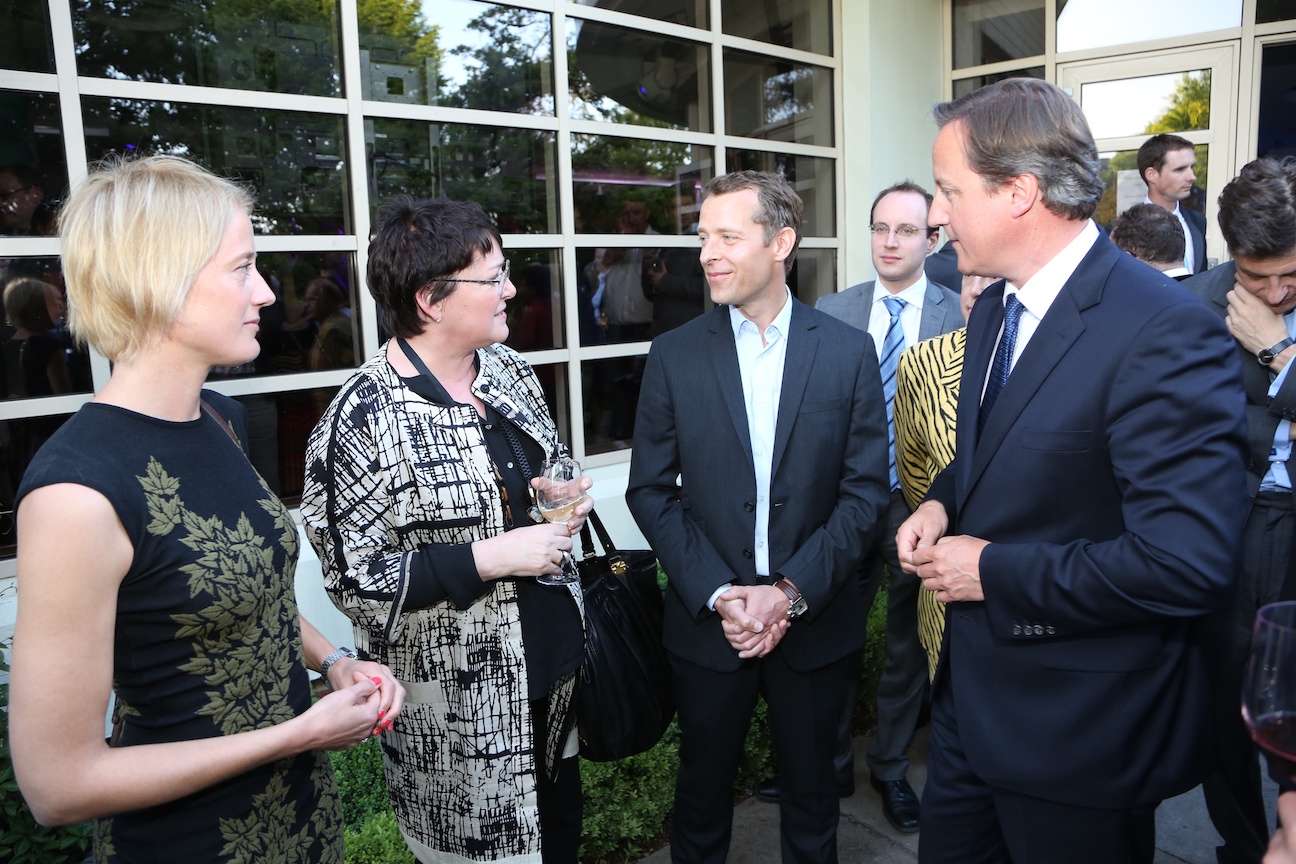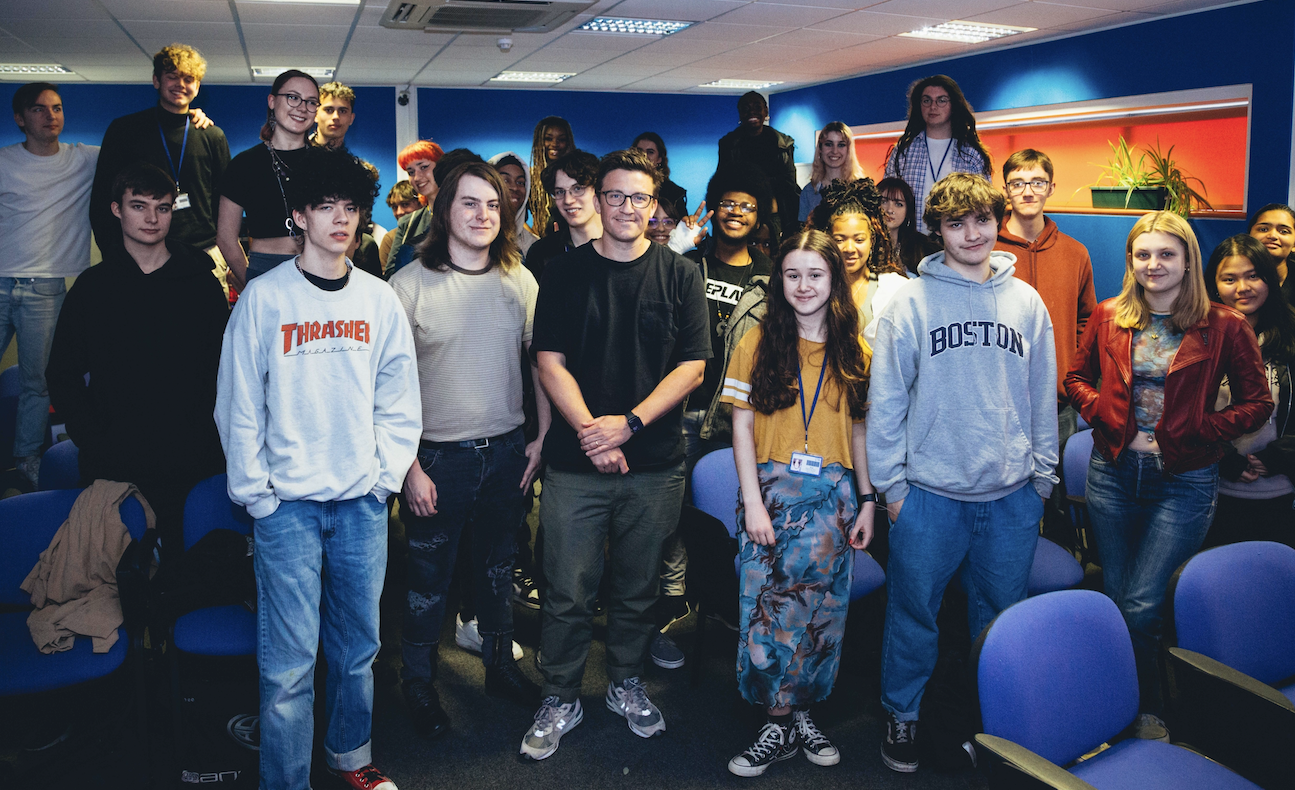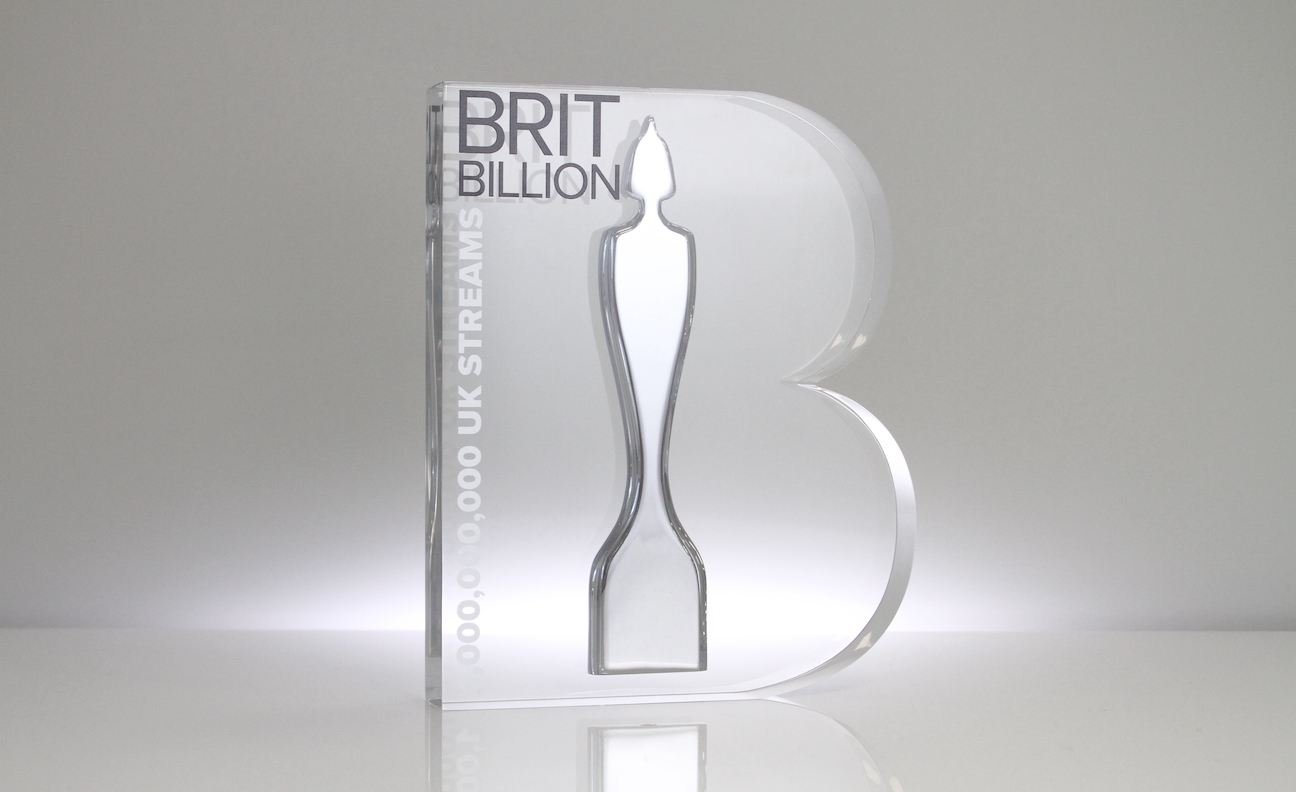Since forming in 1973, the British Phonographic Industry has acted as the representative voice of independent and major record labels across the UK. Alongside a special feature celebrating its 50th anniversary, the BPI’s chief strategy officer and interim CEO Sophie Jones looks at this British institution’s past, present and future…
Over the past 50 years, the BPI’s core mission has always been clear. When we talk about our strapline of promoting British music, what we mean is to create and sustain an environment where our record labels can thrive. When labels thrive, so do artists and fans. And when this happens, great new music is made that enriches our lives and culture, and enables the music economy and exports to flourish.
In turn, this sustains the wider ecosystem that benefits the whole music community, including the live sector, and supports the UK’s cultural and economic life. It’s no coincidence that the UK punches above its weight as the third largest recorded music market in the world and the second biggest exporter of music. These are hard won achievements that reflect labels and artists working in harmony with the creator, tech and retail communities.
Looking to the next 50 years, creating an environment in which our members and recorded music can grow remains a critical priority for the BPI as it seeks to engage with policymakers on behalf of its members. We must also come together as a music community to ensure that the value of music is fully realised – whether by insisting that new platforms or tech start-ups pay fairly for its use, or by tackling digital and increasingly sophisticated physical piracy that still drains around £200 million from the music economy each year.
As an industry, we are excited by the huge potential that artificial intelligence, virtual reality and other technologies offer to enhance music creation, tackling infringements and fan engagement. But it’s vital that human-led creativity and curation remains paramount and that AI serves our industry and the creative process, not the other way round. If copyrights are to be commercially used, this needs to be done only with proper authorisation and with artists and rightsholders fairly compensated. The BPI will be lobbying hard, engaging with government and stakeholders to ensure decisions made now bear fruit in the future.
 Self Esteem at SXSW British Embassy showcase 2022 (Tynesight Photographic Services)
Self Esteem at SXSW British Embassy showcase 2022 (Tynesight Photographic Services)
There are many other priorities too. One of the most pressing is to retain our advantage in the hyper-competitive global music market. As part of this we are making a strong case to significantly increase government funding into the successful Music Export Growth Scheme (MEGS) that the BPI manages. Failure to expand it would be a real missed opportunity, not just for the indie community it largely serves, but for UK trade and music exports.
Key also is that we focus on music and creative arts education, and ensure the talent pipeline becomes a truly national one. That’s why the BPI submitted an application for a new free-to-attend music and creative arts school in Bradford – inspired by our association with the brilliant BRIT School in Croydon and ELAM in Bromley-by-Bow. Its approval would be a tremendous 50th birthday present, not just for the BPI but the whole industry and all the talented young people we hope to give opportunities to in West Yorkshire and beyond.
We must also ensure that, with the support of our Equity & Justice Advisory Group (EJAG) and the UK Music Diversity Taskforce, among others, we continue to be advocates for an industry that is equitable, inclusive and creates a truly level playing field for talent, whatever someone’s background, as well as being free from any harassment and bullying or where there is effective recourse when it does unfortunately raise its head. These are all important things we are working on with our members and industry partners.
So while we use the occasion of our half-century to reflect on our achievements and raise a glass in celebration at the Music Week Awards, which we are proud to be supporting as this year’s headline sponsor, we see this landmark not as a platform to look back. Instead, it is an opportunity to turn to the future with confidence as we look to help shape the dynamics of change that are already present and forging an exciting future for us all.
STATE OF THE NATION
Here, in the first of five pieces penned by former Music Week editor – and current BPI strategic communications consultant – Paul Williams, we look back at how the BPI has tirelessly campaigned on behalf of its members over the years…
While the charts lit up with the glam rock sounds of Slade, The Sweet and others, the UK music industry was coming to terms with one of its darkest periods in 1973. According to Music Week at the time, the business ended the year “facing its worst crisis in history”, against the backdrop of the oil crisis sparked by the Arab members of OPEC, plus Egypt, Syria and Tunisia proclaiming an oil embargo and Ted Heath’s Conservative government calling a three-day week.
So in many ways, the BPI’s incorporation that year as a limited company could not have been better timed, armed under its then-director general Geoffrey Bridge with what it set out at the time as a mission to “promote and protect the welfare and interests of the British record industry”, while providing “a medium to represent the British record industry in negotiations with government departments, unions and other interested parties”.
Over these past five decades the BPI has continuously fought on behalf of its record company members and their artists to defend the value of recorded music, lobbying on issues such as home taping in the ’70s and ’80s and investigations by both the Office of Fair Trading and Monopolies and Mergers Commission on CD pricing in the ’90s. Following intense lobbying by the BPI to argue its members’ case, both the OFT and MMC gave the industry clean bills of health. Since then it has faced countless other battles, from protecting its members’ copyrights in the online world to emerging threats and opportunities today such as AI.
Throughout all these episodes, the BPI has engaged with politicians at the very highest level to protect its members’ interests and help shape government policy and legislation in support of British music.
Among its many achievements, the BPI was at the forefront of successful lobbying for copyright to be extended on music recordings in the UK from 50 to 70 years. It has been a leading industry voice on calls to address the so-called “value gap” and, through its dealings with government, launched the Music Export Growth Scheme (MEGS) to help small and medium-sized independent music companies promote their artists overseas. The scheme makes available grants ranging from £5,000 to £50,000 to assist UK-registered independents with international artist marketing campaigns. Among the many dozens of artists who have been helped by MEGS are Self Esteem, Beabadoobee, Dave, Ghetts, Rina Sawayama, Wolf Alice and Yard Act. The scheme generates an impressive £13 for every £1 invested.
The BPI is lobbying for the government to double the size of MEGS to boost exports of UK music at a time when the UK’s share of the global market is under pressure from competing markets including the US and Europe, as well as rapidly-growing domestic markets such as Latin America and South Korea. It believes that for the UK to retain its status as the second biggest exporter of recorded music globally, continued government support for the industry through schemes such as MEGS is crucial.
To further encourage and support its members in overseas territories, the BPI has for a number of years hosted global trade missions to a variety of music markets. This includes an annual sync trade mission with the Music Publishers Association to Los Angeles to support the demand for music created by British songwriters and recording artists. Other trade missions have taken BPI members to countries such as Australia, Brazil, Canada, China, Germany, India, Japan, Nigeria and South Korea.
 Raise The Roof event 2013: Emma Pike, Frances Moore, Geoff Taylor and David Cameron (JM Enternational)
Raise The Roof event 2013: Emma Pike, Frances Moore, Geoff Taylor and David Cameron (JM Enternational)
Its current public affairs focuses include the ongoing debate around the economics of music streaming, which includes working with representatives from across the industry to develop new codes on transparency and metadata for artists.
The impact of AI is a growing priority. In March, the BPI became one of the signatories of the Human Artistry Campaign, a new industry initiative launched at SXSW that sets out principles for AI and how valuing human creativity and accomplishment must be at the heart of how AI and public policy relating to it need to evolve in the future.
The campaign’s launch followed recent successful lobbying by the BPI and other groups representing the creative sectors against a UK government plan to amend copyright law so that AI developers – including those operating for commercial developers – could ‘text and data mine’ copyrighted work for their own ends without requiring the permission of the writer, artist or rightsholder, nor compensating them in any way. Following its U-turn on the issue, the government will now be bringing together the creative industries and AI developers to see if solutions can be found without legislation.
LET ME ENTERTAIN YOU
A potted history of the many ways in which the BPI has played a crucial role in staging showcase events promoting the very best of British talent…
Nearly two decades after the Grammys launched in the US, the BPI established what became The BRIT Awards as a UK equivalent to honour recording artists and
their music.
Initially, this was a one-off event staged in 1977 to mark the Queen’s Silver Jubilee and the centenary of the invention of recorded sound. It became an annual event in 1982 and for the last four decades has established itself as UK music’s biggest night of the year. This includes a record-breaking 25-year relationship with Mastercard as headline sponsor and three decades with ITV as its broadcast partner.
The BPI has continued to develop and innovate The BRITs, including its relocation to The O2 in London which has hosted the event every year since 2011, when Adele wowed with a show-stopping performance of Someone Like You. It has also overseen various expansions of The BRITs brand, such as the launch of the Classic BRIT Awards and the annual BRITs Week in aid of War Child. Other additions include introducing the Critics’ Choice (now Rising Star) Award to highlight new UK music talent. Adele was the first recipient in 2008, while other winners have included Florence + The Machine, Rag’N’Bone Man, Sam Fender, Sam Smith and, in 2023, FLO.

While The BRITs has been televised by countless overseas broadcasters over the years, since 2014 it has been screened globally thanks to an agreement with YouTube. The deal was struck as part of the BPI’s mission to establish the event as a global entertainment brand.
More recent innovations include the introduction of non-gender categories to further promote inclusivity and enable artists to be judged on their work and not who they are and how they identify, as well as an immersive BRITs experience with Roblox, which last year included a VIP party with a performance by PinkPantheress.
Another first happened this year, with The BRITs making its Saturday night debut. The live ITV broadcast secured its best TV ratings in three years with just under four million watching on the night, including a decade-high 54% share of 16 to 34-year-olds. The run-up to the event included Bring On The BRITs with Mastercard, a 30-minute special hosted by Vick Hope and Jack Saunders that was streamed across the official BRIT digital channels and unveiled the shortlists for 12 categories.
In addition, the annual BRITs Week also took place in venues in Bristol, Glasgow, London and Manchester, with performances from the likes of Beabadoobee, Frank Turner, The Hunna, Kojey Radical, Metronomy, Rina Sawayama, Sugababes, Years & Years and The 1975.
Having been one of the founding backers when it launched three decades ago, the BPI now also manages the Mercury Prize. This began in 2015 when a new broadcast partnership was announced with the BBC. Since then the winners have included Arlo Parks, Dave, Michael Kiwanuka, Skepta, Wolf Alice and Little Simz, who won with Sometimes I Might Be Introvert in 2022. That year, a hastily-rearranged ceremony was held several weeks after the event was meant to have taken place which, of course, had to be postponed at the very last moment following the passing of Queen Elizabeth II. Incredibly, all 11 artists who were due to have performed on the original date were available for the rescheduled one at Eventim Apollo in London’s Hammersmith. The 2022 event also welcomed a new sponsor, leading mobile services provider Free Now.
Among its other events, the BPI launched National Album Day with ERA to celebrate the UK’s love of the album and to enable a national conversation around the format. Taking place every October, the annual event is held in conjunction with official audio partner Bowers & Wilkins and official broadcast partner BBC Sounds. Each year it has boosted music sales around the event, mainly through albums specially released by record labels to mark the day. A different theme has been adopted annually, including the 1980s, women in music, debut albums and for the 2023 event that will take place on Saturday, October 14, the theme will be the 1990s.
In 2020, meanwhile, the BPI signed a multi-year naming rights and content publishing deal with Outernet Global whose complex in London’s Denmark Street takes in multiple venues, media spaces and a hotel. It includes showcasing content from BPI-related events such as The BRITs and the launch of The BPI Recording Studio.
PROTECT & SERVE
Defending its members’ copyrights has long been part of the BPI’s DNA…
From the very beginning, anti-piracy – now called content protection – has been at the heart of what the BPI does on behalf of its members. Across the organisation’s five decades this has included stopping the production and sale of illegal copies and bootlegs of physical releases, starting with vinyl LPs, eight-track cartridges and cassettes and, by the 1980s, CDs. This has resulted in countless raids in collaboration with police and trading standards, the seizure of a vast quantity of fake products, court action and convictions.
In its early years, the BPI fought a long battle against home taping when a burgeoning blank cassette market saw consumers make their own copies of recordings. The focus later switched to CD-Rs and online piracy, which the BPI first started tackling in the mid-1990s. Its efforts included the 2004 launch of an awareness campaign targeting what was then estimated to be the 7.4 million UK users of illegal peer-to-peer music sites, followed by a series of legal actions.
The BPI has also never shied away from standing up to the most powerful names and businesses to defend its members’ copyrights. In the 1980s it fought a prolonged legal battle with Alan Sugar’s Amstrad over a marketing campaign for a twin cassette deck system that the BPI said encouraged home taping. Two decades later, as the fight against piracy moved online, it mounted a successful High Court challenge against Stelios Haji-Ioannou and his EasyGroup over its EasyInternetCafés that allowed customers to download and burn unlicensed tracks onto a CD for £5. The service was shut down and the BPI won damages, legal fees and court costs.
Over the years, it has undertaken many legal actions on behalf of its members. One of its biggest victories came in 2012 when the UK High Court ordered five leading UK ISPs to block access to notorious illegal peer-to-peer site The Pirate Bay.
BPI’s battles with piracy have taken many turns in recent decades, with stream ripping one of its current biggest targets. BPI was able to make a legal case and have stream rippers recognised as infringing entities, despite not directly hosting content. As a result, stream rippers are now globally delisted from Google Search, blocked by UK ISPs, and processed by the City Of London Police’s Intellectual Property Crime Unit under criminal law.
The BPI has also sent more than 1 billion notices to search engines, making it the first in the world by Google for content delistings due to copyright. This has produced much cleaner search results, with users more likely to be pointed to official channels when searching for their favourite artists.
As part of its anti-piracy work, BPI negotiated changes to global policies with Google, Facebook and online advertising networks to demote illegal sites and cut their funding. In February 2017, the BPI and Motion Picture Association obtained Google and Bing’s commitment to demote illegal sites following notices from rightsholders. As part of Creative Content UK (CCUK), it has also supported initiatives like Get It Right From A Genuine Site, a government-funded consumer education campaign to encourage consumers to value the creative process and to access content legally.
While much of its content protection efforts are now focused online, there is no hold up in its pursuit of physical music piracy. This was highlighted by a BPI investigation that led to court convictions earlier this year and the confiscation of fake vinyl records worth more than £2 million. The case highlighted that music piracy is often linked to other forms of criminality, which in this instance concerned child protection issues. Other cases have involved crimes of violence and money laundering, where evidence provided by BPI’s Content Protection Unit was key to criminal trials. In this recent case, four individuals pleaded guilty and received prison sentences and confiscation of the monies made.
The BPI’s Content Protection team continues to tackle unlicensed music distribution through a combination of enforcement, litigation and lobbying. It remains heavily invested in ensuring clean search results, blocking the most egregious websites, addressing steam ripping and disrupting the sale of unlicensed goods on both marketplaces and traditional retail. Increased emphasis is also placed on the protection of streaming revenue, the shift of piracy to mobile devices and mobile apps, leak prevention and response, regulation of platforms that might present licensing opportunities, and the disruption of unlicensed vinyl pressing at source.
As the world is increasingly embracing the metaverse, Web3 and AI technologies, the BPI team has been conducting research on the risks associated with this new reality to support the creation of a solid IP protection framework.
YOU RAISE ME UP
It’s not all lobbying, glamorous events and anti-piracy strategies – education, community and good causes are also synonymous with the BPI’s history…
One of the most enduring legacies of the BPI’s past 50 years has been The BRIT School, which it helped launch more than three decades ago. Now established as the UK’s leading performing and creative arts school, its alumni includes Adele, Amy Winehouse, Cat Burns, Jessie J, Katie Melua, Loyle Carner and many more.
At the start of its golden anniversary year, the BPI announced in January it had put in an application to the Department For Education’s free school funding process (Wave-15) to open a specialist creative school in the North of England. The planned school in Bradford is inspired by The BRIT School’s successful model. It will be aimed at young people looking to pursue a career in the creative sector and is a collaboration between the BPI, Sony Music, Universal Music, Warner Music, The BRIT School and the Day One Trust, which runs games design, music, film and television college ELAM (East London Arts and Music) and The London Screen Academy.
The bid submitted for the school is the culmination of long-held ambitions by the BPI and its members to create a specialist creative school outside London and South East England. If approved, it would be only one of 15 to be granted funding through Wave-15 and would be projected to open in 2026.
The BRIT School has been one of the main beneficiaries of The BRIT Trust, The BRIT Awards’ charity. It has distributed around £28 million since it formed in 1989, including supporting ELAM. One of its key events is the Music Industry Trusts Award (MITS).
 BRITs 2022 chair Tom March visits the BRIT School
BRITs 2022 chair Tom March visits the BRIT School
With another eye on nurturing future talent, the BPI launched the BRITs Apprentice Scheme in 2018, providing support in each round of funding for 10 individuals of all backgrounds across the UK, with an opportunity to undertake a 15-month paid placement with an independent record label or music company.
Over the years, the BPI has stepped in at times of crisis and emergencies. When a fire burned down Sony DADC’s Enfield distribution centre in the summer of 2011, it worked with its independent and major record company members to put together a fund to help indies who had lost stock in the blaze. Then, in the wake of the pandemic, BPI launched a £1.5 million fund backed by UK labels, PPL and DSPs to help artists and the wider music community impacted by Covid-19.
A key ongoing priority for the BPI is addressing equity and diversity issues in the music industry. The BPI Equality & Justice Advisory Group (EJAG) was set up following the murder of George Floyd in 2020. It is made up largely of industry executives of colour with a background in music and media. Its purpose is to advise and challenge the BPI on issues focused on race and gender to further support and promote equity and inclusion. Around the same time as EJAG’s launch, the BPI signed up to the UK Music Diversity Taskforce’s 10-Point Plan to more actively promote equality and inclusion within the music industry.
The BPI is also focused on environmental and sustainability issues. In 2007, it became part of Julie’s Bicycle. The pan-industry consortium, whose mission is to address climate change and environmental issues, has worked directly with the BPI to undertake carbon audits of The BRIT Awards.
LIVING BY NUMBERS
Across the last 50 years, the BPI has celebrated the industry’s achievements via sales awards, overseen a revolution in the weekly charts and more...
In its first year of operation, the BPI launched the UK music industry’s first accredited sales certifications with Platinum, Gold and Silver awards to recognise the commercial success of singles and albums. When introduced in 1973, these were initially awarded based on monetary sales, but this later changed to units sold. Streaming success is now reflected in the calculations, while awards are additionally given to music videos.
In another industry first, in the mid-’70s the BPI began compiling and reporting UK recorded music sales and revenue figures. Previously, the only industry numbers available were put together by the Department of Trade and Industry. This began with tracking unit sales and revenue of vinyl, cassettes and eight-track cartridges, but along the way has expanded to include the likes of CDs, videos, digital downloads and streaming. For nearly five decades, the BPI has annually published the All About The Music yearbook housing a wealth of industry stats and data. The 2023 edition came out in April.
The decade after sales awards debuted, it ushered in an electronic revolution in how the UK’s singles and albums chart were compiled each week, with the introduction of data collection machines in record shops to accurately capture what they had sold. This change with Gallup happened in 1983, nearly nine years before Billboard in the US made a similar move – dispensing with compiling its weekly charts by calling stores to find out what
they had sold and instead using Nielsen SoundScan (now Luminate) to begin electronically tracking sales data.
Over the last five decades, the BPI has overseen the compilation and publication of the UK’s weekly singles and albums charts, as well as other charts covering sales and streaming. This has involved various partnerships down the years, including CIN (Chart Information Network), and culminated in a joint venture with what is now ERA (then retail association BARD) for what became the Official Charts Company. Through this JV, the UK has the world’s fastest and most sophisticated charts.
Since 2020, the BPI has also run the Music & Tech Springboard programme, which provides collaboration and networking opportunities for a growing global community of innovative music tech startups. Springboard members have created cutting-edge solutions across a range of categories including generative AI, gaming, artist and creator services, distribution and direct-to-fan marketing.
During the last week of March, Music & Tech Springboard staged a series of online events called Meet The Market Pitch Webinars where a different Springboard member presented their music tech service for five minutes each day across the week. A second round of webinars will take place in early summer and will feature a different selection of Springboard startups.
ONE IN A BILLION...
This year sees the launch of BRIT Billion, a new award designed to recognise British talent that has hit remarkable heights commercially.
Reflecting the ever-changing way music is consumed, this spring the BPI will launch BRIT Billion, a prestigious new award that will recognise artists whose music has surpassed one billion UK streams across their career. It will run parallel to the existing BRIT Certified scheme of Platinum, Gold and Silver awards and will use Official Charts Company data.

Set to launch 50 years after the BPI introduced sales awards for singles and albums, BRIT Billion represents the first significant upgrade to the certifications programme since April 2018, when it was rebranded from the BPI Awards to the BRIT Certified Awards. This will be the first time in its five-decade history that the certifications scheme officially recognises an artist’s combined success across multiple projects. The one billion career total will include tracks an artist has appeared on either as the principal performer or as a featured artist, as credited by the Official Charts.
The BRIT Billion award has been created by Gaudio Awards who also produce the acclaimed OCC No.1 Awards. It features the iconic BRITs ‘B’ and an encapsulated BRITs statuette, which will be personalised with the artist’s name. Also available to label and management teams, the award will celebrate their valued contribution towards an artist’s career success.









